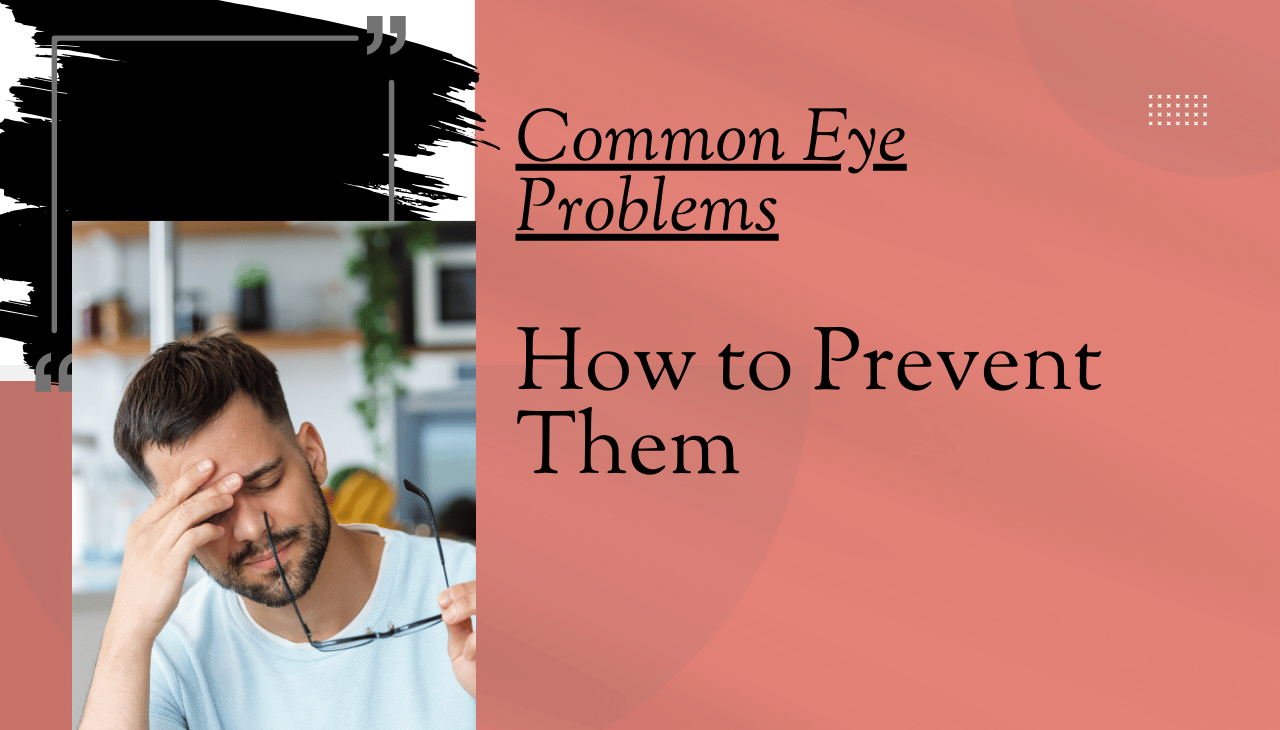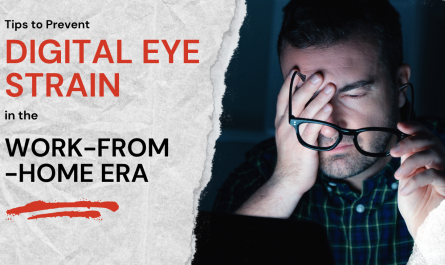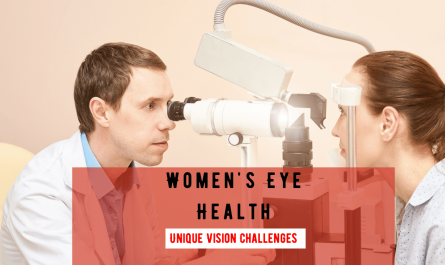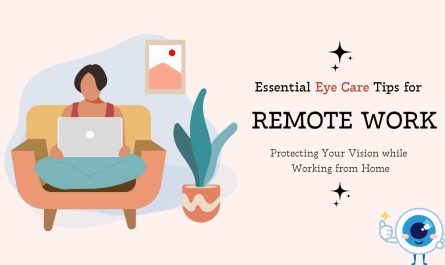Introduction
Our eyes are one of the most important sensory organs, allowing us to see and experience the world around us. However, they are also vulnerable to various conditions that can impact vision and overall eye health. Many common eye problems can be prevented or managed effectively with the right knowledge and care. In this blog, we will explore five common eye problems, their causes, symptoms, and practical prevention tips.

1. Refractive Errors (Myopia, Hyperopia, and Astigmatism)
What Are Refractive Errors?
Refractive errors occur when the shape of the eye prevents light from focusing directly on the retina. The most common types include:
- Myopia (Nearsightedness): Difficulty seeing distant objects clearly.
- Hyperopia (Farsightedness): Difficulty seeing close objects clearly.
- Astigmatism: Blurred or distorted vision due to an irregularly shaped cornea.
Causes and Symptoms
- Genetics play a significant role in refractive errors.
- Prolonged screen time and excessive near work can contribute to worsening eyesight.
- Symptoms include blurry vision, eye strain, headaches, and difficulty reading.
Prevention and Management
- Regular eye exams help detect refractive errors early.
- Follow the 20-20-20 rule: Every 20 minutes, look 20 feet away for 20 seconds to reduce strain.
- Wearing prescribed eyeglasses or contact lenses ensures clear vision.
2. Dry Eye Syndrome
What is Dry Eye Syndrome?
Dry eye syndrome occurs when the eyes do not produce enough tears or the quality of tears is poor, leading to irritation and discomfort.
Causes and Symptoms
- Causes: Prolonged screen use, aging, hormonal changes, environmental factors (wind, smoke, or air conditioning), and certain medications.
- Symptoms: Redness, burning sensation, gritty feeling, excessive tearing (paradoxically), and sensitivity to light.
Prevention and Management
- Blink frequently when using digital devices.
- Stay hydrated and include omega-3 fatty acids in your diet.
- Use artificial tears or lubricating eye drops as needed.
- Maintain proper humidity levels in your environment.
3. Cataracts
What Are Cataracts?
A cataract is the clouding of the eye’s natural lens, leading to blurry vision and, in severe cases, blindness. It is more common in older adults but can also develop due to injury or medical conditions.
Causes and Symptoms
- Aging is the primary cause of cataracts.
- Excessive UV exposure, smoking, and diabetes increase the risk.
- Symptoms include blurred or foggy vision, difficulty seeing at night, sensitivity to light, and faded colors.
Prevention and Management
- Wear sunglasses with UV protection.
- Maintain a healthy diet rich in antioxidants (leafy greens, carrots, and citrus fruits).
- Avoid smoking and manage diabetes effectively.
- Surgical removal of cataracts is a safe and effective treatment option.
4. Glaucoma
What is Glaucoma?
Glaucoma is a group of eye diseases that damage the optic nerve, often due to increased intraocular pressure. It is a leading cause of irreversible blindness.
Causes and Symptoms
- Family history and age are significant risk factors.
- High eye pressure, diabetes, and hypertension can contribute.
- Early stages may be symptomless, but advanced glaucoma causes vision loss and tunnel vision.
Prevention and Management
- Regular eye check-ups are crucial, especially for those over 40.
- Maintain a healthy lifestyle to regulate blood pressure and blood sugar levels.
- Eye drops prescribed by doctors can help reduce intraocular pressure.
- In severe cases, laser treatment or surgery may be necessary.
5. Diabetic Retinopathy
What is Diabetic Retinopathy?
Diabetic retinopathy is a complication of diabetes that affects the retina’s blood vessels, leading to vision impairment and blindness if left untreated.
Causes and Symptoms
- Poorly controlled diabetes is the primary cause.
- High blood sugar damages the retinal blood vessels, causing swelling or leakage.
- Symptoms include blurred vision, floaters, dark areas in vision, and eventual vision loss.
Prevention and Management
- Control blood sugar levels through diet, exercise, and medication.
- Schedule regular eye exams for early detection and treatment.
- Laser therapy and injections can slow the progression of the disease.
Consult the Experts at Laxmi Eye Hospital
Laxmi Eye Hospital is one of the largest and most trusted eye care providers in Mumbai, delivering excellence in eye treatment for over 30 years. With experienced eye doctors and a commitment to transparent treatment, Laxmi Eye Hospital offers advanced diagnostic and eye care services across Panvel, Kharghar, Kamothe, and Dombivli. Our specialized treatments include Specs Removal/LASIK (Bladeless LASIK, ICL, Contoura Vision LASIK), Cataract Surgery, Glaucoma Treatment, Diabetic Eye Care, Retina Treatment, Cornea Clinic (Eye Donation, Keratoconus Management), and Pediatric Ophthalmology, ensuring comprehensive eye care under one roof.
Book an appointment today
Visit us at one of our branches:
- Dombivli: Laxmi Eye Clinic, SS Business Park, Gharda Circle
- Kharghar: Anant CHS Plot 31, Sector 04
- Panvel: Mulla Hamid Rd, Old Panvel
- Kamothe: Near ICICI Bank, Pratik Gardens, Sector 34
FAQs
1. How often should I get an eye check-up? It is recommended to have an eye exam every 1-2 years, or more frequently if you have vision problems or conditions like diabetes or high blood pressure.
2. Can I prevent cataracts naturally? While aging is inevitable, a healthy lifestyle, UV protection, and avoiding smoking can slow cataract development.
3. What foods are good for eye health? Leafy greens, carrots, fish rich in omega-3, citrus fruits, and nuts support eye health.
4. Does too much screen time damage eyesight? Prolonged screen time can cause digital eye strain. Follow the 20-20-20 rule to reduce strain.
5. Can glaucoma be cured? Glaucoma cannot be cured, but it can be managed with medications, laser treatment, or surgery to prevent vision loss.
Conclusion
Taking care of your eyes is essential for maintaining good vision and overall well-being. Understanding common eye problems, their symptoms, and preventive measures can help protect your eyesight for years to come. If you experience any vision-related issues, consult an eye specialist at Laxmi Eye Hospital for expert care and treatment. Prioritize your eye health today to enjoy clear vision and a better quality of life!




